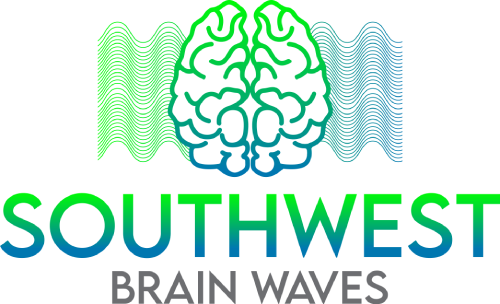Mental health care has seen a surge of innovation in recent years, with groundbreaking technologies offering effective and accessible solutions. Among these advancements, Deep Transcranial Magnetic Stimulation (Deep TMS) stands out as a transformative approach for treating mental health disorders. As a non-invasive, FDA-approved treatment, Deep TMS provides new hope for individuals seeking effective relief without the drawbacks of medication or surgery. In this blog, we explore the benefits of Deep TMS and how it is reshaping mental health care.
Understanding Deep TMS
Deep TMS is a non-invasive procedure that uses magnetic fields to stimulate specific regions of the brain associated with mental health disorders. Unlike traditional TMS, which focuses on surface-level stimulation, Deep TMS penetrates deeper brain structures, targeting areas critical to emotional regulation and cognitive function. This advanced technology offers a precise and personalized approach to mental health care.
The Need for Non-Invasive Solutions
For many individuals, traditional mental health treatments like medication and psychotherapy are not enough. Some experience severe side effects from medication, while others face resistance to treatment or limited access to therapy. These challenges have created a demand for non-invasive, effective alternatives that can address the root causes of mental health disorders.
Deep TMS fulfills this need by providing a safe, evidence-based treatment option that does not rely on drugs or invasive procedures. It’s particularly beneficial for individuals who have not responded to conventional treatments, offering a new path toward recovery.
Key Benefits of Deep TMS
1. Non-Invasive and Painless
Deep TMS is entirely non-invasive, requiring no surgical intervention or anesthesia. Patients simply wear a specialized helmet during treatment, which delivers targeted magnetic pulses to the brain. The procedure is painless, with most patients reporting only mild discomfort, such as a tapping sensation on the scalp.
2. Effective for Treatment-Resistant Conditions
One of the most significant advantages of Deep TMS is its effectiveness in treating conditions that have not responded to traditional methods. This includes Major Depressive Disorder (MDD), Obsessive-Compulsive Disorder (OCD), and other complex mental health challenges.
3. Minimal Side Effects
Unlike medications that often come with a host of side effects—from weight gain to emotional blunting—Deep TMS has minimal side effects. Some patients may experience mild headaches or scalp discomfort, but these are typically short-lived and resolve quickly.
4. Quick and Convenient Sessions
Each Deep TMS session lasts about 20 minutes, making it easy to fit into a busy schedule. There is no downtime required, allowing patients to resume their daily activities immediately after treatment.
5. Backed by Research and FDA-Approved
Deep TMS is supported by a growing body of clinical research, demonstrating its safety and efficacy. The treatment is FDA-approved for conditions like MDD and OCD, giving patients and providers confidence in its reliability.
Conditions Treated by Deep TMS
Major Depressive Disorder (MDD)
Depression is one of the most common mental health conditions, affecting millions worldwide. Deep TMS targets the prefrontal cortex, a brain region involved in mood regulation, to alleviate depressive symptoms and improve overall well-being.
Obsessive-Compulsive Disorder (OCD)
Deep TMS has shown remarkable results in reducing the intrusive thoughts and compulsive behaviors associated with OCD. By targeting specific brain circuits, the treatment helps patients regain control over their lives.
Anxiety Disorders
For individuals struggling with generalized anxiety disorder (GAD) or social anxiety, Deep TMS offers a promising solution. The technology modulates brain activity to reduce excessive worry and fear, promoting a calmer state of mind.
Addiction and Cravings
Deep TMS is also being explored for its potential to treat addiction and substance use disorders. By influencing the brain’s reward pathways, it may help reduce cravings and support long-term recovery.
The Science Behind Deep TMS
Deep TMS works by delivering electromagnetic pulses to specific brain regions. These pulses stimulate or inhibit neural activity, depending on the desired outcome. For example, in depression, the treatment activates underactive areas of the brain, helping to restore a healthy balance. This targeted approach ensures that the treatment addresses the underlying neurological causes of mental health disorders.
Patient Experiences
Patients who have undergone Deep TMS often report life-changing results. For instance, Emily, a 35-year-old teacher, struggled with treatment-resistant depression for years. After completing a course of Deep TMS sessions, she noticed a significant improvement in her mood and energy levels, allowing her to re-engage with her career and family.
Similarly, Tom, a 28-year-old software developer, found relief from severe OCD through Deep TMS. The treatment helped reduce his compulsive behaviors, enabling him to focus on his work and social life without constant interruptions.
What to Expect During Treatment
- Initial Assessment Patients undergo a thorough evaluation to determine if Deep TMS is the right option. This includes a review of their medical history and mental health symptoms.
- Treatment Sessions During each session, the patient wears a helmet equipped with magnetic coils. The procedure is painless and requires no sedation.
- Treatment Duration Most patients complete 20-30 sessions over several weeks. The frequency and number of sessions are tailored to each individual’s needs.
- Follow-Up Care After the initial treatment course, some patients may benefit from maintenance sessions to sustain long-term benefits.
Breaking the Stigma Around Mental Health Care
One of the most significant barriers to seeking mental health treatment is stigma. By offering a non-invasive and scientifically validated solution, Deep TMS encourages more individuals to seek help without fear of judgment. This technology is not only transforming how we treat mental health disorders but also how society perceives them.
The Future of Mental Health Treatment
As research into Deep TMS continues, its applications are expanding. From addressing post-traumatic stress disorder (PTSD) to improving cognitive function in neurological conditions, the possibilities are vast. Deep TMS represents a significant leap forward in our understanding of the brain and its role in mental health.
Conclusion
Deep TMS is a groundbreaking solution for individuals seeking non-invasive, effective treatment for mental health challenges. With its ability to target specific brain regions, provide quick relief, and minimize side effects, it offers a new standard of care for conditions like depression, anxiety, and OCD.
At the forefront of this innovation, providers like Southwest Brain Waves are committed to delivering compassionate, science-backed care that empowers patients to reclaim their lives. If you or someone you know is struggling with mental health challenges, consider exploring the benefits of Deep TMS—a revolutionary step toward lasting well-being.

